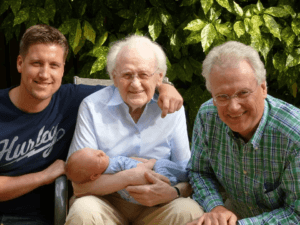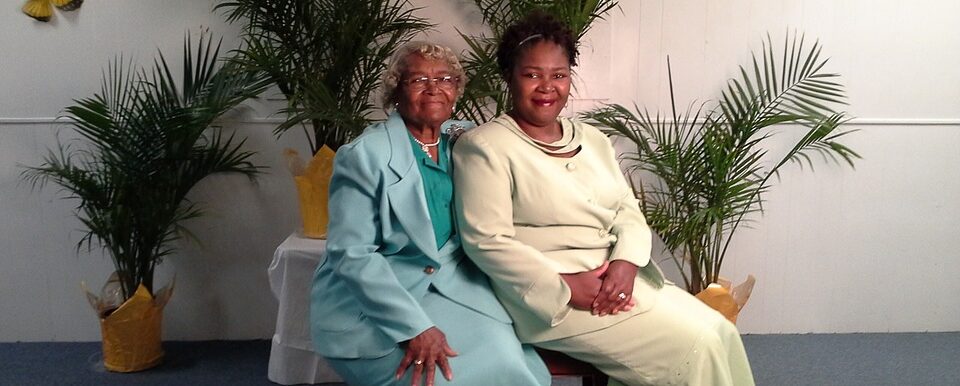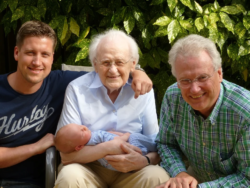How old do you feel? “Not that old” you might say, but your mirror tells you a different story. Physical changes in the body with age are certainly more noticeable.
Do you ever wonder how on earth those extra laugh lines or wrinkles appeared seemingly overnight?
You may also wonder why there were only one or two strands of graying hair on your head when you went to bed last night and so many more have sprouted overnight.
And no matter how hard you try, your midsection seems to constantly attract additional weight and your shoe size seems to have increased for no apparent reason.
Although you might be unaware, there are also several internal changes occurring in the body as you age.
It is easy for a senior to be distressed by the changes occurring in the body, especially if they do not understand them.
I know I was…… This article explores these changes with age so that you do not experience surprises.
Table of Contents
Aging is Inevitable
Changes in the body with age arise because the cumulative changes that occur in individual cells, when combined, become pronounced in the body organs.

This results in their changes in appearance and function (Besdine 2019)
Aging may be inevitable, but the rate of aging is certainly not. While age is just a number, having 50, 60 or even 70 candles on your birthday cake only signifies the number of your years.
It does not express the rate of aging that has taken place. The aging process cannot be stopped, but learning to manage these changes in the body with age is necessary.
Subjective Age
Most people feel younger or older than they really are and this “subjective age” plays a huge role in their physical and mental health (Robson 2018).
We have all seen people in their 50’s who have aged so rapidly that they look like they are in their late 60’s or early 70s, while the converse is also true.
The rate at which we experience the more noticeable physical changes of aging differ from person to person and is more often related to our genetics, environment, and lifestyle choices.
While the genes you inherit from your parents can predispose you to living a long life or make you susceptible to certain disease patterns, both good and bad lifestyle choices can significantly impact them (Ward 2007).
Indulging in unhealthy habits such as smoking, a sedentary lifestyle, bad eating habits, use of alcohol or substance abuse in your younger years mean that your longevity may no longer be guaranteed.
Conversely, making healthy eating choices and exercising may delay many age-related body changes, reduce the risk of heart attack and delay weakening of the bones.
Changes in Body Shape With Age – Effects on Mobility
Bones, Muscles and Joints
BONES – By the age of 30, bone marrow begins to gradually disappear from the bones in our arms and legs. Bones lose density and become weaker, while the joints become stiffer and less flexible.
A previous article – What is the process of aging? Let’s talk mobility discusses in greater detail how bones, joints and muscles are affected by aging.
Older people may become frail because of brittle bones, and these can lead to slips, trips and falls. A fall can lead to a serious injury, loss of independence, disability and even death.

MUSCLES – Diminished physical strength occurs with aging due to the loss of muscle tissue and the most rapid decline in strength occurs after the age of 50.
It is recommended that older adults avoid lifting heavy items or doing strenuous work as this may lead to injury or present health risks.
Weight-bearing exercises such as walking, dancing, or lifting weights can help maintain muscle mass, strength, and balance.
Shape, Weight and Mobility
BODY SHAPE – As a result of changes in bone mass and thinning of the discs between the vertebrae in the spine, body stature may become shorter.
Furthermore, the curvature of the back vertebrae may gradually be altered. By the early 40’s the average adult starts to lose 1-2 inches over time.
This is what we observe as the stooping posture or gait in many seniors and the elderly. Consequently, awareness and taking corrective measures early is important.
This is one area I take very seriously! Increased muscle loss and reduced fat metabolism can cause fat to be re-distributed to the abdominal and buttock areas and explains why that midsection is so stubborn.
WEIGHT – Most adults generally gain weight between the ages of 30 and 40. By age 50, most adults begin to experience a gradual loss in weight.
In adults over 50 the continued reduction in fat becomes more noticeable changes in the face, legs, and arms but not necessarily the mid-section.
Exercise! Exercise! Exercise! Low-impact exercise such as walking, swimming, and bicycling for at least 30 minutes, three times a week and eating a healthy balanced diet can help maintain a desirable and consistent weight.
MOBILITY AND BALANCE – Changes in the body with age result in changes in bone mass, joints, and muscles, which along with altered curvature of the back vertebrae and poor balance, affect mobility.
Optimal mobility, defined as relative ease and freedom of movement in all its forms, is key to healthy aging (William et al. 2012)
Sometimes tripping on a smooth surface even though there is no obstacle present can be quite distressing. See a medical practitioner if this is frequent as there may be other underlying causes.
Why Does Your Body Change as You Age? – Other Physical and Noticeable Changes
Skin and Head
HAIR – Hair loss and graying are commonly associated with aging. Receding hairlines and thinning of the hair are common by age 50, especially for men. Itching and discomfort may arise from dry hair.
Graying tends to vary by ethnic groups and individuals (Center for Aging with Dignity 2011).
Hormonal changes in men cause hairs in the nose and ears to be more sensitive to testosterone and grow coarser and longer.
In women, hormonal changes cause a reduction in estrogen resulting in growth of facial hairs (Davis 2018).
Consequently, many people are usually self-conscious. Wigs, toupees, and hair coloring offer some relief to cover or disguise graying hair or hair loss.

SKIN – Noteable changes in the body with age in the skin is that it becomes thinner, less elastic, is more fragile and may be dry. Sweat glands produce less sweat, while age spots and wrinkles become noticeable around the ages of 40 to 50.
Wrinkles and sagging skin are most common in the arms, face, and neck.
The skin bruises easily and is more prone to cuts. Furthermore, it is no longer as resistant to cuts and bruises.
Consequently, the use of moisturizing lotion or cream is recommended especially in the winter months to help prevent cuts.
FACE – Loss of volume and fat from facial bone can result in less tightness of the facial skin causing facial sagging. This is one of the changes in the body with age that women generally find alarming.
Aging changes in the face are a special area of focus by the beauty industry, and billions of dollars are invested into products which claim to “reverse” or delay these changes such as wrinkles, age spots and face sagging.
In addition, with aging, the overall facial contour can sometimes change quite drastically.

Vision and Mouth Changes in the Body With Age
VISION – With age, the eyes become drier and the focusing ability of the lens is diminished.
The whites of the eyes become firmer, while the retinas become thinner.
Additionally, color perception may be less vibrant. Consequently, vision can be affected by these changes as images tend to be blurry or out of focus.
Most major eye diseases are age-related and the prevalence of these sight-threatening diseases dramatically increase above 75 years of age.
TEETH AND GUMS – Although teeth are expected to last a lifetime, as we age, they become weak and more sensitive to hot and cold temperatures and gums may begin to recede as part of the changes in the body with age. Also, the salivary glands produce less saliva.
Disorders of the oral cavity contribute to poor eating habits in the elderly while loose painful teeth or ill-fitting dentures may result in a reduced desire or ability to eat (Abdul Razak et al. 2014).
Discoloration of teeth generally also occur as one of the changes in the body with age.
To savor and enjoy food you chew require a sense of smell and a sense of taste. The sharpness of these senses may diminish with age.
Chewing and tasting food can be difficult for seniors with missing or damaged teeth, or who wear dentures.
Furthermore, because the salivary glands produce less saliva, dry mouth, bad breath, gum disease and tooth decay may occur.
A reduced smell and taste may result in a loss of appetite, accompanied by weight loss. The solution is increased dental hygiene for aging seniors.
Nails and Feet
NAILS – Nails grow more slowly and tend to become more brittle and form vertical ridges, making them more difficult to cut and maintain.
Fungal infections of the toenails may cause the toenails to thicken and become more difficult to manage. As a result, unsightly hand and toenails need to be managed more frequently
FEET – The morphology of the foot changes as we get older. Aging feet are characterized by loss of muscle mass, weakening of the bones and decreased elasticity of the tendons.
These factors coupled with being overweight contribute to “foot spreading” and ultimately foot pain.
Poor circulation in the feet due to sedentary lifestyles is also common. Refer to a previous article – Foot Pain in Seniors – Can be Agonizing
As foot spreading occurs, it becomes necessary for seniors to change their shoe size to accommodate the changes. Failure to do so can cause excruciating foot pain.
Changes in the Body With Age – Internal Changes
Brain Function
MEMORY– Problems with memory are common in normally aging seniors. Aging causes shrinking of the the brain size (Peters 2006). This is different for everyone based on their genes, lifestyle, and environmental factors.
Changes in the body with age include a shrinking of the brain mass, thinning of the outer ridged surface of the brain and a decrease in the levels of chemical substances for signals.
Some loss of receptors by certain nerve cells may also occur (Refer to a previous article – Changes in the Body with Age – Mental Function)
Minor memory lapses such as misplaced keys, or even forgetting the name of an old classmate are not an issue and do not indicate the presence of dementia or Alzheimer’s but keeping the memory sharp is important.
Consequently, there are lots of exercises you can do to increase cognitive function.
VITAL SIGNS – The heart rate takes longer to return to normal after you exercise it therefore becomes increasingly more difficult for the body to control its temperature.
In addition, there is a greater risk of hypothermia or heat stroke and older adults need to be careful in conditions of extreme heat or cold.

The Immune Systems and Changes in the Body With Age
IMMUNE SYSTEM –The aging immune system loses the ability to protect against infections and cancer and fails to support appropriate wound healing.
Aging of the immune system acts as an accelerator for other age-related diseases.
It occurs prematurely in some clinical conditions and most prominently in patients with the autoimmune syndrome rheumatoid arthritis (Weyand & Goronzy 2016).
Other Changes in the Body With Age
SLEEP –Typically aging is associated with decrease in the amount of slow wave sleep. The elderly tend to go to sleep earlier in the evening and wake up earlier due to a phase advance in their circadian sleep cycle.
These changes in the body with age may result in the development of sleep related respiratory disorders.
DIGESTIVE SYSTEM – Movement of food through the digestive system becomes slower resulting in increased constipation. In addition, the stomach, liver, pancreas, and small intestine make smaller amounts of digestive juices.
BLADDER – Changes in the body with age result in loss of muscle mass and loss of elasticity, and can cause problems with bowel and bladder control. Refer to these other previous articles for more in-depth discussions – Incontinence in Seniors – A Touchy Subject, Bladder Problems in Older Men – How to Decrease Risk? and Bladder Problems in Older Women – Helpful Guide.
HEARING – Age related hearing loss is quite normal and common and accounts for loss of some efficiency in the functioning of the hearing apparatus.
If you have subjected your ears to the abuse of consistently listening to loud noise over the 85 dB threshold, some loud noise induced damage of the inner ear may also be present.
Refer to previous article – The Best Hearing Aids for Seniors – Degrees of Hearing Loss for a detailed account. As you age, higher frequencies of sound also become harder to hear.
Related Articles
- Eye Health in Seniors. What to Expect in Aging Adults
- How Aging Affects Vision, Best Foods for Aging Eyes
- The Best Foods To Boost the Immune System – Know Why
- How to Boost the Immune System Quickly – Role of Diet and Sleep
- The Immune System and Aging – In Simple Language
- What is the Process of Aging – Let’s Talk Mobility
In Conclusion
There are a lot of changes in the body with age. While aging is a natural biological process which cannot be stopped, it should however be embraced and managed with understanding and not surprise.
The age you feel means more than your actual birth date because after all, age is just a number!
Leave any comments you may have in the comment box below.
Selected References
1. Robson, D (2018) BBC https://www.bbc.com/future/article/20180712-the-age-you-feel-means-more-than-your-actual-birth date
2. Peters, R (2006) Ageing and the brain Postgrad Med J. 82(964): 84–88 https://www.ncbi.nlm.nih.gov/pmc/articles/PMC2596698/
3. Bradley et al. (2010) Aging and Sleep: Physiology and Pathophysiology Semin Respir Crit Care Med. 31(5): 618–633. https://www.ncbi.nlm.nih.gov/pmc/articles/PMC3500384/
4. Ward, L (2007) What causes aging? https://health.howstuffworks.com/wellness/aging/aging-process/aging-causes.htm/printable
5. Abdul Razak P et al (2014) Geriatric Oral Health: A Review Article. J Int Oral Health. 6(6): 110–116. https://www.ncbi.nlm.nih.gov/pmc/articles/PMC4295446/
6. Center for Aging with Dignity (2011) Aging. Age-Related Physical Changes. Part 2 of a Series
7. Besdine RW (2019) Overview of Aging. Merck Manuals. https://www.merckmanuals.com/en-ca/home/older-people’s-health-issues/the-aging-body/overview-of-aging?query=overview of aging
8. Weyand CM & Goronzy JJ (2016) Aging of the Immune System. Mechanisms and Therapeutic Targets. Ann Am Thorac Soc. 13 Suppl 5:S422-S428. doi: 10.1513/AnnalsATS.201602-095AW https://www.ncbi.nlm.nih.gov/pubmed/28005419
9. Chader G.J. & Taylor A (2013) The Aging Eye: Normal Changes, Age-Related Diseases, and Sight-Saving Approaches Invest Ophthalmol Vis Sci. 54(14): ORSF1–ORSF4. https://www.ncbi.nlm.nih.gov/pmc/articles/PMC4139274/
10. Davis D (2018) Aging: The Surprises of Getting Older https://www.medicinenet.com/aging_surprises_getting_older/article.htm
11. Chader G.J & Taylor A (2013). Preface: The Aging Eye: Normal Changes, Age-Related Diseases, and Sight-Saving Approaches, https://www.ncbi.nlm.nih.gov/pmc/articles/PMC4139274/


Those are a lot of changes, and it is a little scary to read about them. It must be disconcerting to go through such changes …
I drank a lot of alcohol at parties and when I went out in my twenties, not excessively, but enthusiastically 😉 I have, however, always eaten healthy, little to no meat, and I have been vegan for ten years (I was vegetarian before that). I have also cut down on alcohol consumption. I am and feel healthy, and I hope that my healthy diet will keep me young 🙂 so, that I remain not only young at heart but also physicially young 🙂
I have seen what age did to my grandparents and it was a scary thing to see … My mother is 76 and she is in excellent shape, but she has also always eaten a healthy diet and done exercise. As you mentioned, it does make a difference.
Thanks for sharing Christine. A healthy diet is the difference between a good or bad quality of life as we age.
Ceci
Hi Ceci, Like this post, I agree to say that with age a lot in your body change. I never took care of myself or my body since I was 20. I,m now 55 and I feel all the change you earn within the years.
thank you for this article. Take Care
Lyne
It’s never too late to start taking care of your body Line! You don’t want any surprises a few years down the road.
Ceci
I knew that a lot of things go on in the body as it ages. Our body changes like crazy and it is happening everywher, all the time!
The amount of things that go on with in our body is kinda of scary too! Imagine if we are feeling old; just how old our insides feel!
Yes!! Excerising and eating right can help so much it is crazy how not everyone is hopping on that gravy train!
Thank you for this informative article!
Hi Brenda,
Glad to learn that you are already on the “gravy train” of exercising and eating right. It’s the only way to have an improved quality of life as one ages.
Ceci
Well, there is a saying that you are only as old as you feel, isn’t it. I like to say my mind is still in the state of a 15-16 years old one, but, I wish it was true for my physical state as well. We do change as we age-anyone would agree with that. But, far less would be truly aware of that while younger and even less would actually do something about it.
It is a shame that the majority of us pay attention to our body and our overall health only when signs of aging are present already. Had we established a healthier lifestyle, as you suggest, but earlier, many of us would have far less problems in later life.
Anyway, thank you for such a concise presentation of all the changes we may expect-however unpleasant some might be when they come, they will certainly not be a surprise anymore.
I am delighted you found this article informative! Please visit again soon! Lots of new articles are on the way.
Ceci
That was really informative Ceci! I must admit that I have my own bad habits and even though I’m still quite young, I constantly feel the need to change those into healthier ones. I need to cut down on fast food for instance! As you said, taking care of our body is a must even when we’re young and I’ll work harder to change my bad habits. Thanks for sharing this article!
The joys of fast food in our youth translate into a less resilient body in our older years. However, its never too late to maintain a healthy lifestyle. It cna make all the difference in our quality of life when older.
Ceci
Helllo Ceci,
You always write such well researched articles. This one is beautifully written too.
Scary thought, isn’t it? Though in our culture, aging is taken as very natural, and I think a lot about how a person feels, is a part of the culture he grows up in.
I sure hope we learn to age grracefully.
Love,
Aps
Happy you found value in this article Aparna. I really take the time to research any topic I write for my senior readers because I am almost getting to that stage myself and I really want to understand these changes. My friends also ask lots of questions as well!! Thanks for stopping by the website.
Ceci